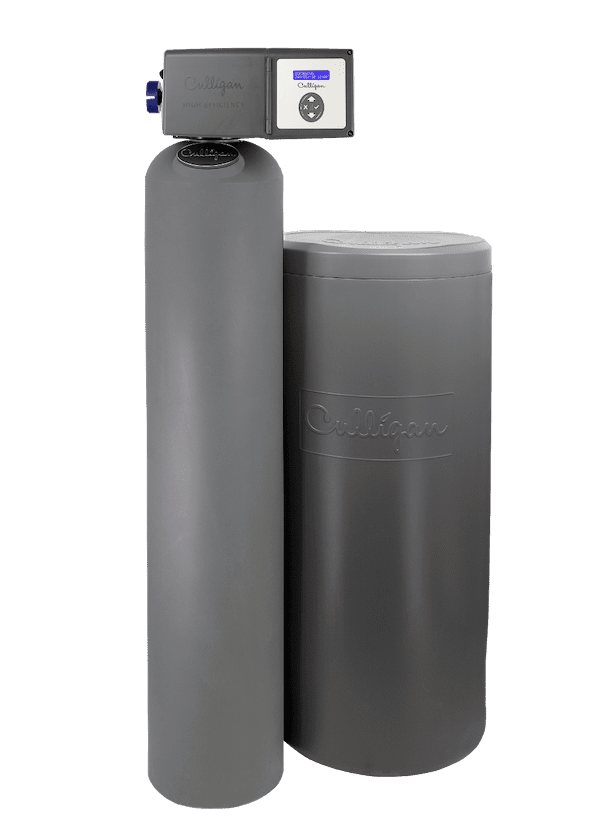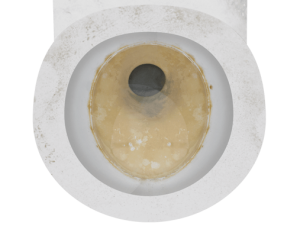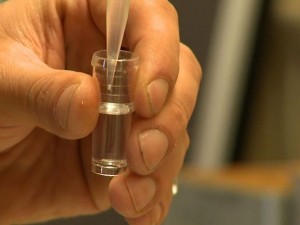Why does my water smell like rotten eggs?
The smell of rotten eggs isn't welcome anywhere, especially in your water. We've got answers to all of your hydrogen sulfide questions.
Why does my water smell like rotten eggs? How do I get rid of it?
The cause of a rotten egg smell in a private well is usually hydrogen sulfide. It's a smelly, colorless gas. Removing the smell from your water depends on the root cause of the problem. Which symptom applies to you?
My hot water smells like rotten eggs:
Hydrogen sulfide is a colorless gas that smells like rotten eggs. And it's a common problem for water from private wells. To fix the problem, we'll need to find the root cause of the gas. Here are a few possibilities:

Removing the rod can remove the smell, but shorten the life of your water heater tank. An aluminum or zinc rod is more expensive but could fix the problem.
Culligan can also add FDA-approved corrosion inhibitors to your water. This allows you to safely remove the anode rod without losing corrosion protection.
But if nothing else works, a dealkalizer system can remove sulfate from your water.
My cold water smells like rotten eggs:
Sulfate-reducing bacteria (SRB) cause cold water to smell like rotten eggs. The bacteria thrive in poorly aerated plumbing and corrode metal parts. And naturally occurring sulfates fuel the bacteria.
You'll smell SRB if your water hasn't run for a few hours. Like in the morning, when you first get a glass of water.
Shock-chlorination and Culligan's chlorine feed system are highly effective. They can kill and prevent sulfate-reducing bacteria from forming.
My hot and cold water smell like rotten eggs:
In our other examples, hydrogen sulfide had a root cause, like sulfur or bacteria. But if both your hot and cold water smell, it's probably caused by naturally occurring hydrogen sulfide.
The only solution is to remove the gas. So depending on your water conditions, Culligan offers multiple treatments. Common solutions include a Softener Cleer Plus or Sulfur Cleer system.
Chemical feeds and carbon filtration can help. But choosing the right treatment will require a visit from your local Culligan water expert. He's trained and equipped to test your water for contaminants and offer the perfect solution.


Are there other causes for water that smells like rotten eggs?
Iron bacteria can also cause a rotten egg smell. But usually includes a red, slimy substance in your sinks, toilets, and shower. These bacteria are harmless, other than the stains, tastes, and odors.
Iron can be deceptive. So, it's important to get an iron bacteria test from Culligan before taking action.
If iron bacteria are the cause, Culligan has a solution.
Is sulfur water bad for you?
Sulfur is common in the foods you eat. So other than the smell of hydrogen sulfide, there is little on human health. But, some can experience a laxative effect. This often leads to higher rates of diarrhea and dehydration, especially in infants.
What other effects can sulfur have?
High levels of sulfur can leave stains on your plumbing fixtures, toilets and sinks. It can also tarnish silver and copper housewares.
Sulfur bacteria can create an environment where other bacteria can grow. And this can cause further problems, like staining and corrosion.
Sulfur is relatively harmless, unlike other well water contaminants.
 It's important to get your well water tested annually, if not more often. And your local Culligan water expert is trained and equipped to collect a water sample and return it to our EPA-certified lab for analysis.
It's important to get your well water tested annually, if not more often. And your local Culligan water expert is trained and equipped to collect a water sample and return it to our EPA-certified lab for analysis.Common well contaminants include lead, radium, arsenic and nitrates. And all of these are more harmful than sulfur. It's usually impossible to detect dangerous contaminants without a water test. But all are easily reduced with a Culligan reverse osmosis system.
